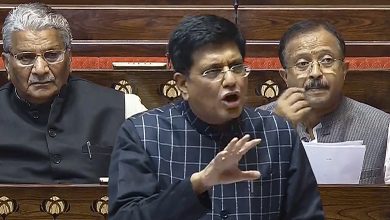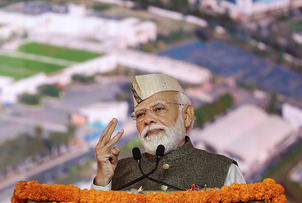Kerala vet doc gets patent for biodiesel from chicken waste
Wayanad (Kerala), Jul 25 (PTI):
After waiting for more than seven years, John Abraham, a veterinary-doctor-turned-inventor, has finally received the patents for inventing biodiesel from slaughtered chicken waste that offers mileage of over 38 km a litre at around 40 per cent of the current price of diesel and lowers pollution by half.
After seven-and-a-half years, the Indian Patent Office finally granted us the patent on July 7, 2021, for inventing ‘biodiesel produced from rendered chicken oil’, Abraham, an associate professor at the veterinary college here under the Kerala Veterinary & Animal Sciences University, told PTI from Wayanad. The invention is an outcome of his doctoral research at the Namakkal Veterinary College under the Tamil Nadu Veterinary & Animal Sciences University.
He said the patent was delayed as permission from the National Biodiversity Authority was needed because the key raw material going into the patented invention was a biological material locally sourced.
During 2009-12, Abraham pioneered research on producing biodiesel from the slaughter waste of broiler chicken and dead poultry birds. He completed the research under the guidance of the late Prof Ramesh Saravanakumar (passed away awaiting the patent in November 2020), who had filed for the patents in 2014 on behalf of the Tamil Nadu Veterinary & Animal Sciences University, Abraham said.
After his research, Abraham joined the Pookode Veterinary College, near Kalpetta in Wayanad, and in 2014 he set a Rs 18-lakh pilot plant at the college campus with funding from the Indian Council for Agricultural Research.
Following this, Bharat Petroleum’s Kochi Refinery in April 2015 had issued a quality certificate for the biodiesel he invented and since then a college vehicle was being run on this fuel only, he said. When asked why chicken waste, he said birds and pigs have single stomach which offer higher fat saturation and this is easy to render oil under room temperature. Three of his students and Abraham are now working on developing biodiesel from pig waste. He said 100 kg of chicken waste, procured from slaughter houses for which he gets paid up to Rs 7 a kg, can produce 1 liter of biodiesel, which offers over 38 kmpl and can be sold at 40 per cent of the diesel price now.
The higher mileage and lower pollution is due to the fact that chicken waste contains 62 per cent fat, offering the key energy content of Cetane at 72, while in normal diesel it is only 64. It also increases engine efficiency by 11 per cent due to the presence of more oxygen, and reduces smoke levels by over 47 per cent, Abraham said.








